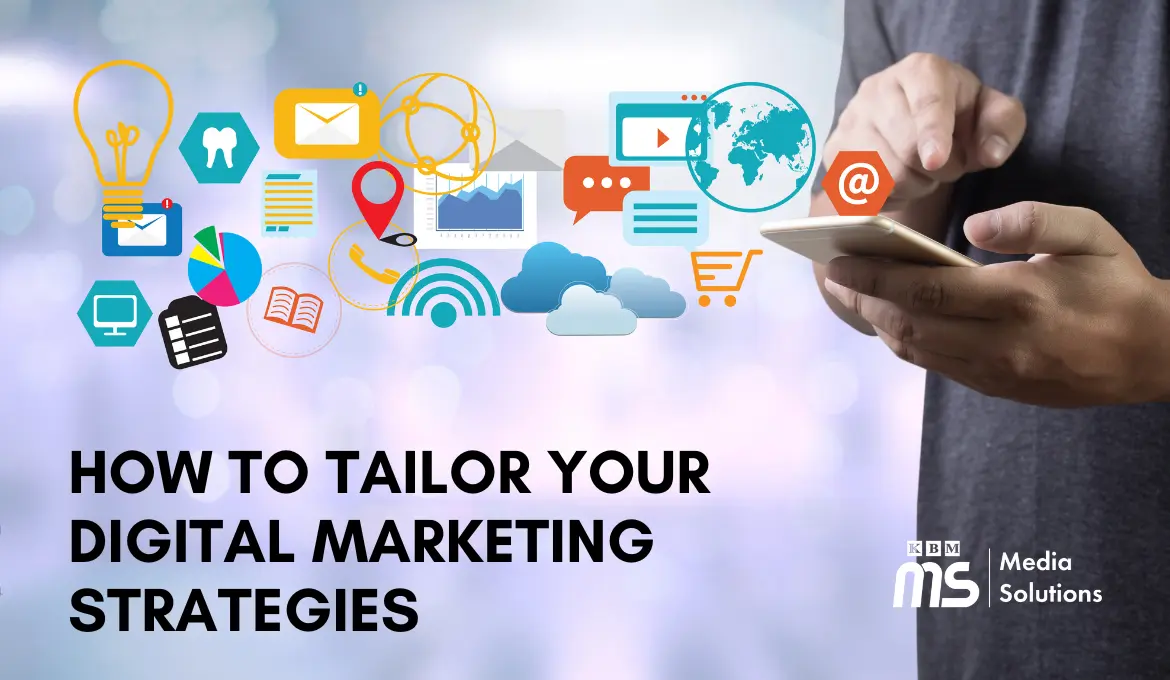The Power of Personalisation: Tailoring Your Digital Marketing Strategies for Success

Posted on Jun 27, 2024
The one-size-fits-all approach no longer cuts it in the ever-evolving digital marketing landscape. Consumers today crave personalised experiences that resonate with their individual needs and preferences. As such, businesses must follow their marketing strategies to cater to this demand for customisation.
In this blog post, we'll explain the power of personalisation in digital marketing and explore how businesses can leverage it effectively to enhance customer engagement, drive conversions, and foster long-term loyalty.
Understanding the Importance of Personalisation
Personalisation is more than just emailing customers by their first name. It's about delivering tailored content, product recommendations, and offers that align with customers' interests, behaviours, and purchasing history.
Studies have consistently shown that personalised marketing messages lead to high conversions, increased customer satisfaction, and improved brand loyalty. Personalisation is a powerful differentiator in today's hyper-competitive marketplace, where consumers are inundated with marketing messages from countless brands.
It allows businesses to cut through the noise and establish meaningful connections with their target audience. By demonstrating an understanding of their customers' preferences and needs, brands can foster trust and loyalty, ultimately driving business growth.
Leveraging Data to Drive Personalisation
Data lies at the heart of effective personalisation. Businesses can acquire valuable insights into their audience's preferences and behaviours by harnessing customer data from various sources, such as website interactions, purchase history, social media engagement, and demographic information.
Advanced analytics tools enable marketers to segment their target audience into groups based on common characteristics, allowing for more targeted and personalised marketing campaigns. Furthermore, machine learning algorithms can analyse large datasets to uncover patterns and trends that human marketers may overlook.
These insights can reflect the development of highly personalised content and offers that resonate with specific customer segments. From personalised product recommendations to dynamically generated email content, data-driven personalisation empowers marketers to deliver relevant messages to the right audience at the right time through the proper channels.
Personalisation across Multiple Touchpoints
Effective personalisation extends beyond individual marketing channels; it encompasses the entire customer journey across multiple touchpoints. Whether it's a website visit, social media interaction, email communication, or in-store experience, every interaction presents an opportunity to deliver personalised content and recommendations.
For example, an e-commerce retailer can personalise product recommendations based on a customer's browsing history and past purchases on their website and in follow-up email campaigns. Similarly, a brick-and-mortar store can leverage mobile apps to deliver personalised offers and discounts to customers as they browse the aisles.
Consistency is key across these touchpoints. Businesses can reinforce their brand identity and strengthen customer relationships by ensuring a seamless and cohesive experience across all channels. Moreover, by tracking customer interactions across channels, companies can acquire a holistic view of each customer's journey and tailor their marketing efforts accordingly.
The Future of Personalization: AI and Automation
As technology continues to evolve, the future of personalisation lies in artificial intelligence (AI) and automation. AI-powered algorithms can examine vast amounts of data in real-time to deliver highly personalised experiences at scale.
From chatbots that provide personalised customer support to predictive analytics that anticipate customer needs, AI enables businesses to offer hyper-targeted marketing messages with unprecedented efficiency and accuracy.
Automation further streamlines the personalisation process by enabling marketers to set up rules and triggers that automatically deliver personalised content and offers based on specific customer actions or criteria. This saves time and resources and ensures timely and relevant communication with customers.
However, as businesses embrace AI and automation, it's crucial to maintain a human touch. While technology can facilitate personalisation, the human element—empathy, creativity, and understanding—truly connects with customers on a deeper level. By striking the right balance between human interaction and technology, companies can unlock the full potential of personalisation in the digital age.
The Bottom Line
Personalisation is no longer just a buzzword; it's a fundamental strategy for success in today's digital landscape. By understanding the importance of personalisation, leveraging data to drive insights, implementing personalised experiences across multiple touchpoints, and embracing AI and automation, businesses can develop meaningful connections with their audience, drive engagement, and, ultimately, achieve their marketing objectives. As consumer expectations continue to grow, businesses prioritising personalisation will survive and thrive in an increasingly competitive marketplace.